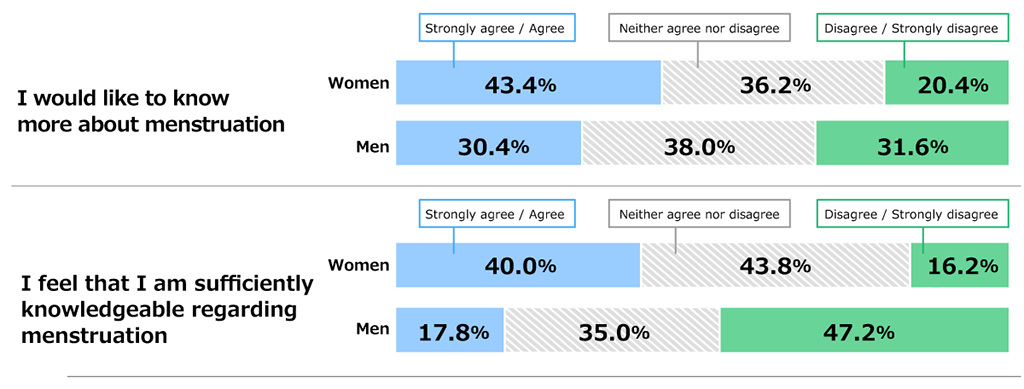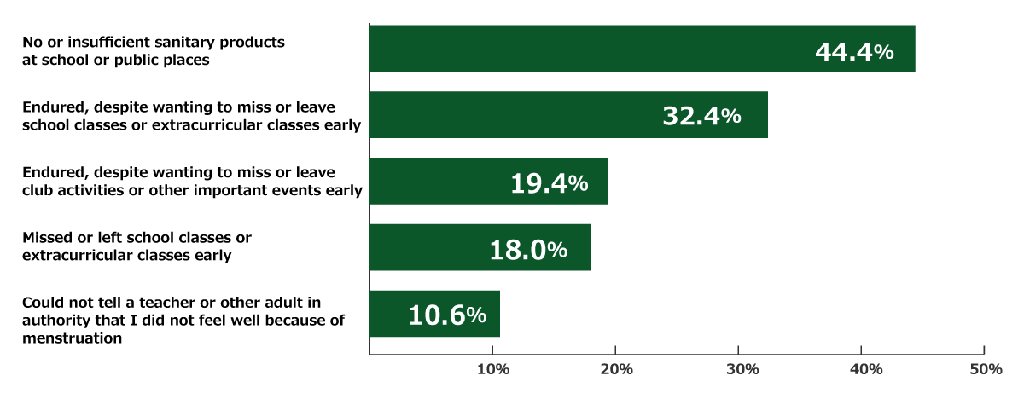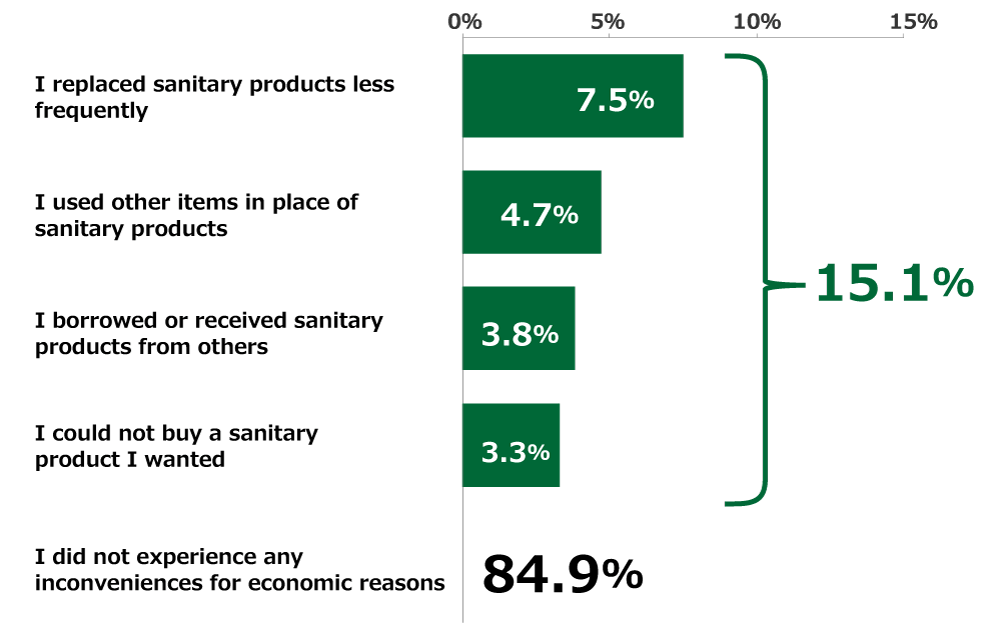Awareness Survey of 18-Year-Olds – Menstrual IssuesResults of 44th installment announced
The 44th installment of the Awareness Survey of 18-Year-Olds, launched by The Nippon Foundation in October 2018, was carried out from December 10 to 15, 2021, on the subject of “Menstrual Issues.” The survey was intended to examine young men and women’s level of understanding of inconveniences in daily life and economic effects of menstruation. The survey found that many young people feel the subject is not sufficiently understood, with only 40% of women and 18% of men feeling that they had sufficient knowledge themselves, and 74% of women and 61% of men replying that men need to know more about menstruation. Roughly half of both men and women replied that classes in school were their main source of information on the subject, but less than 30% of all respondents were satisfied with the amount and content of those classes. The top replies for what they wanted schools to teach were menstruation-related medical products (70% of women) and considerations for women while they are menstruating (56% of men).
Inconveniences in daily life included insufficient sanitary products in public places and wanting to or having to miss or leave school classes or extracurricular activities early. There is also a psychological burden from insufficient understanding or consideration by others, including not being able to tell teachers or other persons in authority that one does not feel well, or having those persons not understand that one does not feel well. In addition, 15% of women replied that they could not purchase sanitary products, or replaced them less frequently or used substitute items, during the past year for economic reasons. Dissatisfaction with the economic burden caused by menstruation was also highlighted, with 72% of women (and 52% of men) replying that sanitary products should be subject to a reduced consumption tax rate and 63% of women replying that sanitary products should be made available for free in places like public restrooms.
Notes:
- From the 13th survey, the number of respondents, comprising men and women aged 17 to 19, has been increased to 1,000 from 800. (With the exception of the 20th installment, “Awareness Survey of Society and Country,” all surveys cover respondents in Japan only.)
- In the information below, differences between total amounts and simple sums are due to rounding.
Survey 44. Menstrual Issues (Results announced on February 4, 2022)
Finding: More than 40% of women and 30% of men would like to know more about menstruation. (n = 500 each for men and women)

Finding: Among women, the main inconvenience in daily life caused by menstruation is the lack of sanitary products at school or public places, followed by enduring despite wanting to miss or leave school classes or extracurricular activities early. (multiple answers allowed; n = 500)
“What are the main inconveniences in daily life or lack of understanding by others you have experienced?”

Finding: Of respondents who have menstruated during the past year, 15.1% have experienced inconveniences with sanitary products for economic reasons. (multiple answers allowed; n = 451)
“During the past year, have you experienced inconveniences with sanitary products for economic reasons?”

Contact
Public Relations Team
The Nippon Foundation
- Email: cc@ps.nippon-foundation.or.jp



